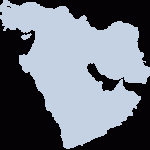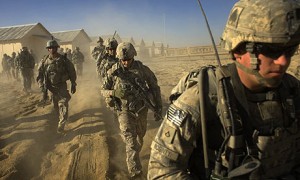
1900 GMT: Punishing Panahi.
Rah-e-Sabz reports that, as punishment for the publication of his letter to the organisers of the Cannes Film Festival (see yesterday's updates), detained film director Jafar Panahi's stay in "temporary prison"
has been extended by two months.
1820 GMT: The Nuclear Non-Story (clarification). Borzou Daragahi pulls us up on our criticism of his
Los Angeles Times article on Iran's nuclear programme, a day after a Reuters story over "a move which shows Tehran seeking to enhance its atomic work" (0800 GMT):
NEW Iran: Last Words of Executed Alamhouli “For God’s Sake, Let Me Hear My Mother’s Voice” (Ghazi)
Iran Analysis: The Economic Squeeze and the Real Sanctions Story (Colvin)
UPDATED Iran Special: Executions, Politics, and the Attack on Nazila Fathi and The New York Times
The Latest from Iran (15 May): Executions, Detentions and a Cancellation
"The story published today did not refer to the new-generation centrifuges that Ahmadinejad has already trumpeted numerous times. It referred to the addition of an additional cascade of (presumably old-fashioned) centrifuges placed inside the 20% enrichment hall. This is something that had not been previously reported."
My apology that I missed this distinction, which was made in the Reuters report. The
Los Angeles Times article, however, does not make the distinction clear, saying only, "Iran has expanded the number of machines producing medical reactor-grade uranium."
But here's the key point: even if we note that Reuters is referring to an additional cascade of older centrifuges, there is no dramatic "nuclear threat" story here, irrespective of the whispers of unnamed Western diplomats. From the Reuters article:
Iran has been using one set or "cascade" of 164 centrifuge machines to refine small amounts of uranium to up to 20 percent purity, according to the International Atomic Energy Agency's last report in February.
But a system using just one cascade is inefficient, analysts said, as it produces a large proportion of leftover low-enriched uranium (LEU) alongside the sought-after highly enriched material.
In recent weeks Iranian officials have been adding a second cascade at the Natanz pilot plant to allow the leftover material to be re-fed into the machines more easily, obtaining its full potential and making the work more efficient, diplomats said.
"The second cascade is aimed at supporting the work of the first," a Western diplomat said....
The changes do not appear be aimed at increasing the amounts produced or to raise the enrichment level further, moves which would ring alarm bells, diplomats said. But they said the second cascade could be reconfigured to do this should Iran decide to.
So in other words, Iran --- suffering a shortage of 20% enriched uranium to keep its medical research reactor operational --- is taking the logical step of trying to produce more stock by adding the second cascade. The jump to a higher enrichment for military use exists only in the speculation of the Western diplomats.
1655 GMT: Prisoner Swap? Earlier today we reported that French graduate student Clotilde Reiss, arrested in July and confined on bail to the French Embassy in Iran since August, will be able to leave Iran after paying a $285,000 fine.
Radio Farda raises another possible reason for the decision to let Reiss go. It notes that Majid Kakavand, an Iranian detained in France on accusations he purchased technology over the Internet to sell to Iran's military, was not extradited to the US and is now back in Iran.
1650 GMT: The Hijab Issue. Ayatollah Mohammad Hossein Fazlollah has pronounced that wearing of hijab is not an area for the governbment but is a personal issue. Now, as Fazlollah is Lebanese, that may not be earth-shattering: what goes in Beirut may not apply in Tehran.
The location of the interview, however, does raise an eyebrow:
it is the "conservative" Khabar Online.1640 GMT: The Oil Squeeze.
Parleman News reports that members of Parliament --- almost 1/5 of the Majlis ---
have asked Minister of Oil Masoud Mirkazemi about problems in his area. Mirkazemi's answers were not accepted last time;if they are turned down three times, he may be impeached.
1635 GMT: Economy Watch. Mus al-Reza Servati, a member of Parliament's Planning and Budget Commission, has complained that --- two months into the Iranian year ---
the government's budget has not been passed to its administration.
1620 GMT:Today's Death Sentences and More.
Agence France Presse has summarised the sentences announced by Tehran Prosecutor General Abbas Jafari Dowlatabadi and his office:
*Death sentences for six protestors have been confirmed.
Three of those sentenced to die --- Mohammad Ali Saremi, Jafar Kazemi, and Mohammad-Ali Haj-Aghai --- were arrested in September. Three --- Ahmad Daneshpour Moghadam, Mohsen Daneshpour Moghadam and Alireza Ghanbari --- were arrested on Ashura (27 December). All six are accused of belonging to the People's Mujahideen Organisation of Iran, the political wing of the "terrorist" Mojahedin-e-Khalq (MKO). the opposition group the Islamic republic's regime calls "the hypocrites."
*Three other people arrested on Ashura --- Motahare Bahrami Haqiqi, Reyhane Haj Ebrahim, and Hadi Qaemi --- have been sentenced to jail after an appeal court overturned their death sentences.
*A death sentence against student Mohammad Amin Valian has been reduced to three-and-a-half years by an appeal court.
*Azar Mansouri, a senior leader of the reformist Islamic Iran Participation Front, has been given a three-year prison term in an appeal court. Reformist journalist Masoud Bastani has been sentenced to six years.
1610 GMT: Today's All-is-Well Moment. You might think that the cancellation by Turkish Prime Minister Recep Tayyip Erdogan of his trip to Iran (see 0545 GMT) would have put a dent in Iran's rhetoric over a possible deal on uranium enrichment.
Nope,
not if you're Foreign Ministry spokesman Ramin Mehmanparast: "It would have been better for Erdogan if he could have been physically in Tehran but in the era of communications, there are other ways to stay in touch."
Mehmanparast played up the not-cancelled visit of Brazilian President Luiz Inacio Lula da Silva: "Concerning the negotiations, I believe the conditions are conducive to reach a serious agreement over the swap deal."
1600 GMT: Mousavi Watch. Make of this what you will: the public statements of Mir Hossein Mousavi appear to have increased in frequency and intensity recently.
Meeting with teachers and clerics of seminaries for the anniversary of the martyrdom of Fatemeh, daughter of Prophet Mohammad, Mousavi said: “If a system claims to be Islamic....[it] should truly pay attention to the way [Prophet Mohammad] treat people and make that their role model.” Mousavi continued:
Now the question of the people is whether the path taken by those in power, who claim to be Muslim and followers of Islam but then lie, has any compatibility with the path of Fatemeh (peace be upon her), whose title Sadigheh means honestly and staying away from wrongdoings and slightest lies....Would the prophet [Mohammad] that we know ever have made such prisons in the territory of Islamic and religious state?
Mousavi then linked the Green Movement to the virtues of the Prophet Mohammad and his family:
Some people gave us the idea of choosing the colour Green in one of the campaign trips Ms. Rahnavard and I had to the holy city of Mashahd, with religious intentions. Therefore this shows the link of this movement to the verdure, beauty and spirituality of our religion and the family of the prophet Mohammad; we considered this as a good sign and, because of the respect of the people for the family of Prophet Mohammad, this colour and Green Wave have become so popular among the people....
The Green Movement has roots in our religious thoughts and as long as the Green Movement is in this path the people of our country support it.
1240 GMT: Damocles' Sword for 12 June. In Khabar Online's account of today's interview with Tehran Prosecutor General Abbas Jafari Dowlatabadi (see 0950 GMT), there is
a clear warning for Mir Hossein Mousavi. Dowlatabadi says that his office continues to collect evidence on Mousavi, in anticipation of a prosecution if Mousavi does not curb his opposition.
1130 GMT: Political Prisoner Watch. As EA readers note in comments below, Clotilde Reiss, the French graduate student, arrested in July for participation in demonstrations,
will be allowed to leave Iran upon the payment of $285,000.
Reiss' lawyer Mohammad Ali Mahdavi Sabet said, "There has been a court verdict which is not an acquittal but will enable her to leave the country."
Reiss was released on bail in August and confined to the French Embassy.
0950 GMT: Death Sentences. An Iranian activist reports that the Iranian judiciary
has ruled on death sentences for 10 political prisoners, detained over the Ashura demonstrations, for "mohareb" (war against God): three were overturned, three upheld, two charges were dropped, and two cases are pending.
Meanwhile, Tehran Prosecutor General Abbas Jafari Dowlatabadi has attempted again to
defend Sunday's execution of five Iranians, four of them Kurdish. Dowlatabadi's interview with Fars News follows that newspaper's publication of the "official" report on the case from Dowlatabadi's office (see
the critique in Thursday's updates).
0825 GMT: Non-Story (cont.). We're watching to see if
this dramatic non-news makes it into general circulation, "US Space Planes 'Worry Iran'".
0800 GMT: Non-Story of the Day? We noticed
the breathless report from Reuters yesterday:
Iran has been setting up extra equipment which could improve the way it enriches uranium to higher levels, diplomats said, a move which shows Tehran seeking to enhance its atomic work as big powers discuss new sanctions.
Iran first started enriching small amounts of uranium to higher levels in February, saying it wanted to make fuel for a medical research reactor. This raised Western suspicion as Iran is seen to lack the ability to make the fuel assemblies needed.
I did not mention this in updates, as I hoped this pretence at an exclusive would just go away. Unfortunately, the
Los Angeles Times has not been so judicious:
Iran has expanded the number of machines producing medical reactor-grade uranium, an incremental step that could increase its ability to produce the highly refined material necessary to build a nuclear bomb, said two diplomats in Vienna, home of the U.N. atomic watchdog agency.
The disclosure, first revealed by news agencies Friday, ups pressure on diplomats struggling to find a resolution of the confrontation between Tehran and the United States, Israel and their European allies over the nuclear program.
Beyond the standard ritual of using unnamed sources as the basis for sweeping claims, the story is not very new: a named, non-Western source --- a Mr. Mahmoud Ahmadinejad ---
declared Iran's plans to construct a new generation of centrifuges. These would produce the 20-percent uranium needed for the Tehran medical reactor.
Of course, what is distinctive about Reuters' story is not the content but the timing: it comes out in the context of chatter and pressure, both in response to Ahmadinejad's own move in New York at the United Nations Nuclear Non-Proliferation Conference and as part of a publicly-renewed effort for tougher sanctions on Iran.
0630 GMT: We have posted,
in a separate entry, Fereshteh Ghazi's report on the last moments of Shirin Alamhouli during her sudden, unexpected execution. Ghazi concludes, "A regime such as this must live in fear. Even the dead haunt it."
0545 GMT: A purported letter from Saeed Massouri on death row in Gohardasht Prison:
In the midst of the country’s serious turmoil, I learnt of the execution of my late-found friends and acquaintances from prison with whom we spent years in the jail cells of Ward 209 [at Evin Prison].
Perhaps they [the regime] think that by executing them, they have managed to frighten us and our people. But shame on us if instead of being more motivated [to continue the struggle against the regime], the execution of our friends and countrymen and compatriots were to frighten us. Indeed, what is to be done at a time when people have no other fate but imprisonment, torture and execution simply for being human; and when this is the price to pay for the slightest attempt to be free and have humanity? Where do those who remain silent in the face of such crimes draw the line between being human or not?....
For my own part, I want to be clear on the degree of fear that these executions really instilled in me: I declare that after the hanging of these five, I am more than ready to be the sixth one to kiss the hangman's noose.
Long live their memory and that of all those whose blood runs through the veins of history.
“The frenzy of the flame subsides only as ashes/Such is what needs to be done to live honourably”
Our updates have been filled this week with a steady stream of new interrogations and arrests, including Kurdish teachers and activists following the execution of 5 Iranians almost a week ago. The latest news is that Kurdish author and civil rights activist Ali Mahomoodi, arrested on 27 September, has been sentenced to six years in prison without possibility of appeal.
On the international front, the significant but largely unnoticed news is that Turkish Recep Tayyip Erdogan
has cancelled this week's trip to Iran. Tehran had been trumpeting the news that Erdogan's visit, coinciding with the arrival of Brazilian President Luiz Ignacio Lula da Silva, would be the occasion for an important round of talks for a uranium enrichment deal.
Erdogan told reporters on Friday, "It seems that a trip to Iran on Monday is no longer possible for me as Iran has not taken that step on the issue. If necessary my foreign minister may go, or I may go later." Erdoğan asked "for a statement of determination" from the Iranians.
Russian President Dmitry Medvedev
poured more cold water on the possibility of a breakthrough during Lula's attendance at a summit of non-aligned nations in Iran this week: "You want me to give the odds on President Lula. Okay. As my friend the Brazilian president is an optimist, I shall also be an optimist. I give 30 percent."
Lula, asked about his chances of success on a scale of one to 10, had replied, "I would give 9.9."
Iran
has freed an Iraqi soldier captured during a border skirmish on Thursday.
 Sunday, May 16, 2010 at 8:55
Sunday, May 16, 2010 at 8:55  Independence Day/Nakba (Catastrophe) Day: Palestinians marked Nakba Day on 15 May, remembering the day in 1948 when Israel declared statehood as the prelude to the fleeing or expulsion of some 700,000 Arabs from their homes. Hundreds of Israeli Arabs took part in a rally in East Jerusalem. On the same day, leaders of Hamas and Fatah displayed rare unity in a joint rally in Gaza.
Independence Day/Nakba (Catastrophe) Day: Palestinians marked Nakba Day on 15 May, remembering the day in 1948 when Israel declared statehood as the prelude to the fleeing or expulsion of some 700,000 Arabs from their homes. Hundreds of Israeli Arabs took part in a rally in East Jerusalem. On the same day, leaders of Hamas and Fatah displayed rare unity in a joint rally in Gaza.



